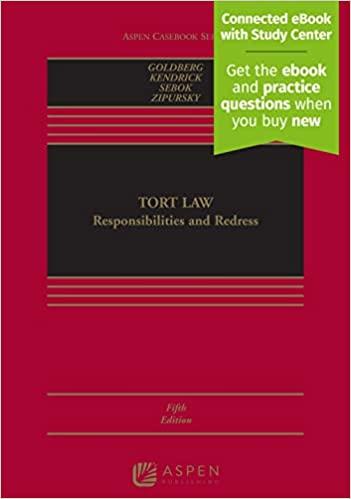Question
In Michigan v. Washington, the defendant and an accomplice were convicted of armed robbery and assault with intent to do great bodily harm. Police stopped
In Michigan v. Washington, the defendant and an accomplice were convicted of armed robbery and assault with intent to do great bodily harm. Police stopped the two men for routine questioning. Later, the suspects heard a radio report of a robbery and shooting that came over the police radio. One of the men who police stopped blurted out that he was the shooter. The trial court admitted the hearsay statement against the other defendant because they were being tried separately. The trial court decision was appropriate because
A. the declaration against interest hearsay exception allows police to tell the jury about about incriminating information gained from any voluntary statement made by any suspect following an arrest.
B. the hearsay exception of a confession should be sufficient to allow the introduction of the statement by a fellow defendant who was not tried with the defendant making the statement.
C. the statement was properly admitted as a declaration against interest because the declarant was being tried separately.
D. a confession by one accomplice, whose statement implicates a second defendant, is generally admissible against the second defendant under the confession exception to the hearsay rule, where the defendants are tried separately.
Step by Step Solution
There are 3 Steps involved in it
Step: 1

Get Instant Access to Expert-Tailored Solutions
See step-by-step solutions with expert insights and AI powered tools for academic success
Step: 2

Step: 3

Ace Your Homework with AI
Get the answers you need in no time with our AI-driven, step-by-step assistance
Get Started


